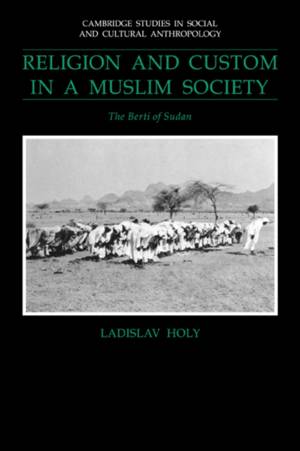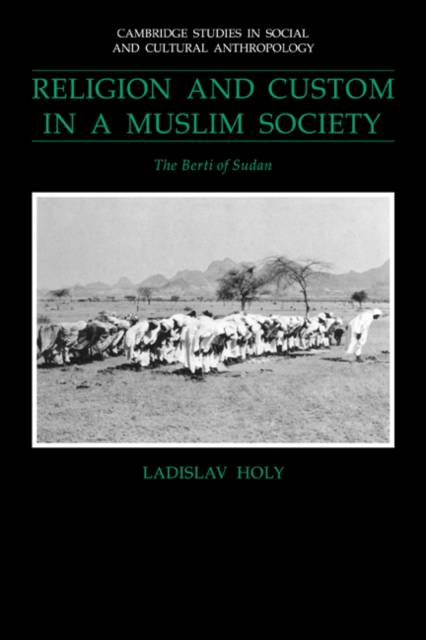
- Afhalen na 1 uur in een winkel met voorraad
- Gratis thuislevering in België vanaf € 30
- Ruim aanbod met 7 miljoen producten
- Afhalen na 1 uur in een winkel met voorraad
- Gratis thuislevering in België vanaf € 30
- Ruim aanbod met 7 miljoen producten
Zoeken
€ 82,45
+ 164 punten
Uitvoering
Omschrijving
Among the Berti of Northern Darfur (Sudan), as among many Muslim societies, the formal religious practices are predominantly the concern of men, while local, unorthodox customary rituals are performed mainly by women. It is usual to dismiss such local, popular practices as pre-Islamic survivals, but Professor Holy shows that the customary rituals constitute an integral part of the religious system of the Berti. Carefully analysing the symbolic statements made in Berti rituals, Professor Holy demonstrates that the distinction between the two classes of rituals is an expression of the gender relationships characteristic of the society. He also examines the social distribution of knowledge about Islam, and explains the role of the religious schools in sustaining religious ideas. The work is not only an ethnographic study of ritual, belief and gender in an African society. It also makes a significant contribution to current anthropological discussion of the interpretation and meaning of rituals and symbols.
Specificaties
Betrokkenen
- Auteur(s):
- Uitgeverij:
Inhoud
- Aantal bladzijden:
- 256
- Taal:
- Engels
- Reeks:
- Reeksnummer:
- nr. 78
Eigenschappen
- Productcode (EAN):
- 9780521024969
- Verschijningsdatum:
- 13/04/2006
- Uitvoering:
- Paperback
- Formaat:
- Trade paperback (VS)
- Afmetingen:
- 152 mm x 229 mm
- Gewicht:
- 381 g

Alleen bij Standaard Boekhandel
+ 164 punten op je klantenkaart van Standaard Boekhandel
Beoordelingen
We publiceren alleen reviews die voldoen aan de voorwaarden voor reviews. Bekijk onze voorwaarden voor reviews.











